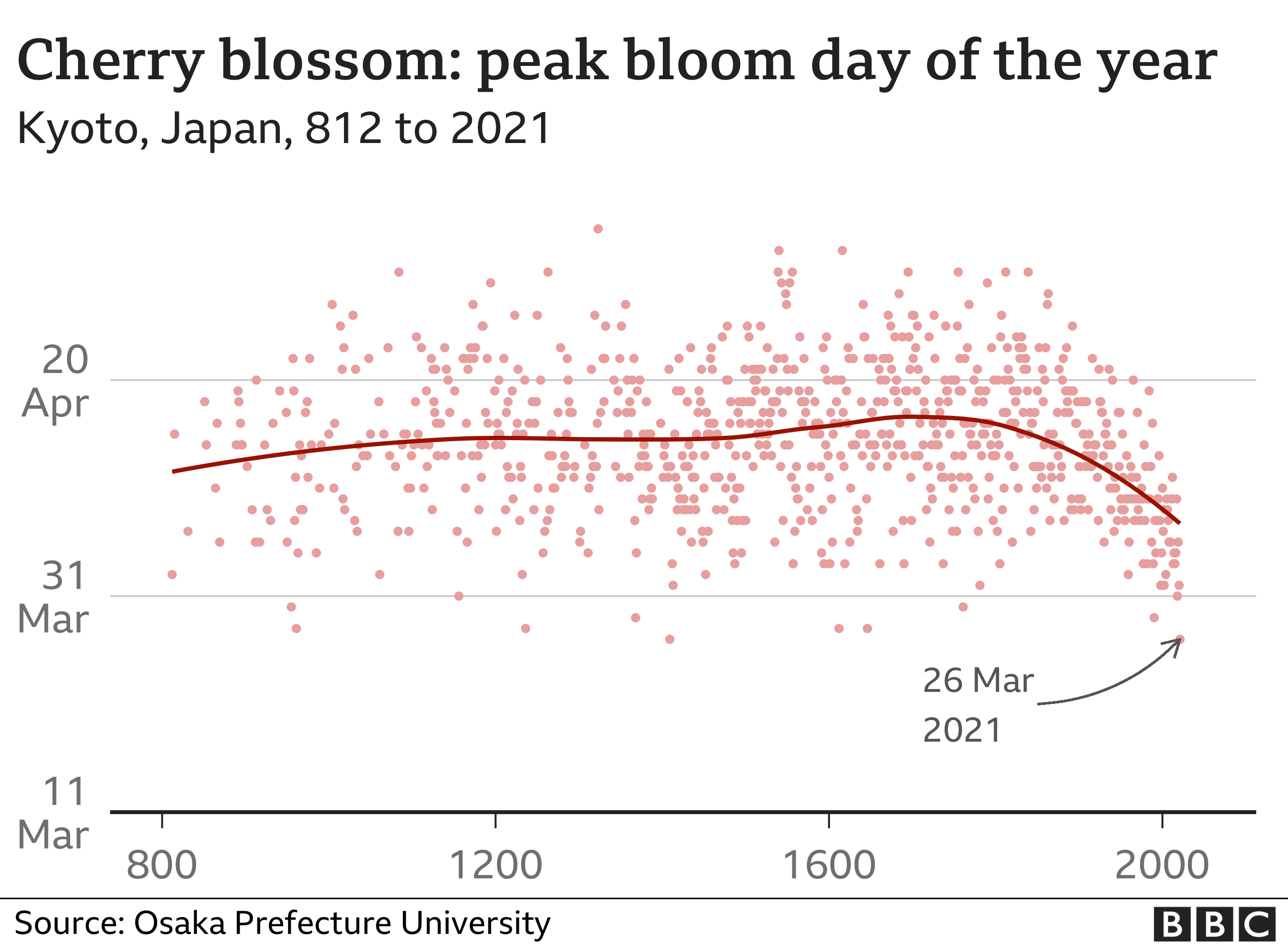KYOTO CHERRY BLOSSOMS 'earliest peak since 812'
A decade ago, Burgundy decreed the earliest legal grape harvest since the Hundred Years War. Now Kyoto's cherry trees have reached their earliest full bloom since the time of Japan's 52nd Emperor, Saga-tennō, a contemporary of Charlemagne.
The 2021 sakura season in the ancient capital peaked on 26 March, according to data collected by Osaka University. The previous record was set in 1409, when the blossoms peaked on 27 March.
The BBC says "Increasingly early flowerings in recent decades are likely to be as a result of climate change scientists say, because imperial court records from Kyoto that go back to 812 AD report no earlier blossoming.
"I have searched and collected the phenological data for full flowering date of cherry tree (Prunus jamasakura) from many diaries and chronicles written by emperors, aristocrats, governors and monks at Kyoto in historical time," he wrote.
Phenology is the study of seasons and recurring biological events.
Since about 1800, the data suggest the peak date in Kyoto has gradually been moving back from mid-April towards the beginning of the month.
The progress of the cherry blossom season is closely monitored, with the Japanese Meteorological Agency issuing forecasts of the first flowers and the peak of the season.
This year, the season began in Hiroshima on 11 March, eight days earlier than the previous record, which was set in 2004, according to Japan Forward.
This data was applied to climatic reconstruction of March mean temperature in Kyoto city. You can see the result of climatic reconstruction in our two papers. Data from the 9th to the 14th centuries was acquired and analyzed by Aono and Saito (2010; International Journal of Biometeorology, 54, 211-219). Phenology for 15th to 21st centuries was acquired and analyzed by Aono and Kazui (2008; International Journal of Climatology, 28, 905-914). If you want to use this phenological data for your research or want to quote this data in your figure, please give me the notice of that and indicate above credit for citation.
Yasuyuki AONO (aono(at)envi.osakafu-u.ac.jp)




